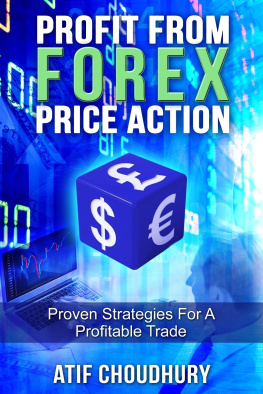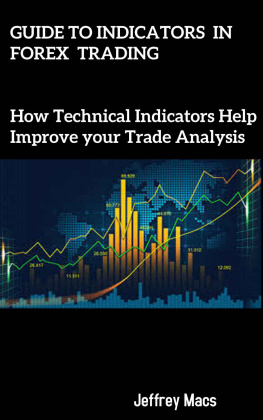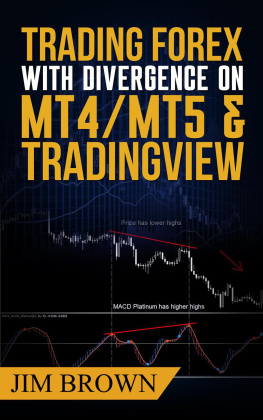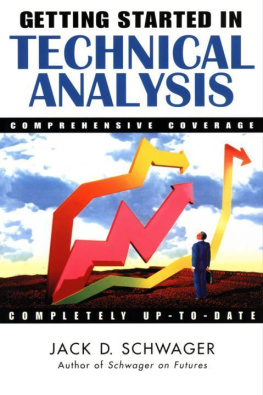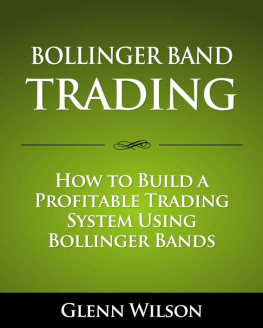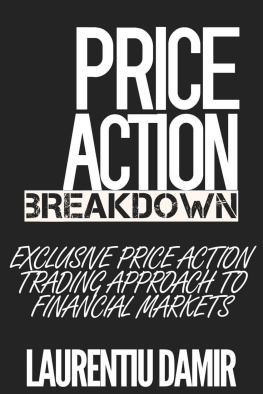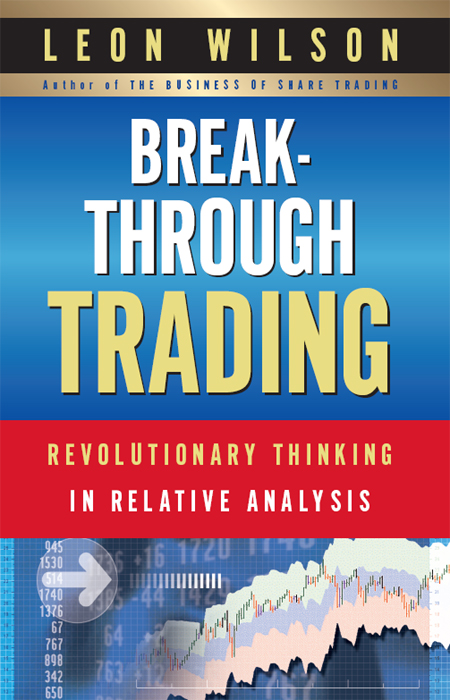Contents

First published 2006 by Wrightbooks
an imprint of John Wiley & Sons Australia, Ltd
42 McDougall Street, Milton Qld 4064
Offices also in Sydney and Melbourne
Typeset in Adobe Garamond 12/14.4 pt
Leon Wilson 2006
The moral rights of the author have been asserted
National Library of Australia
Cataloguing-in-Publication data:
Wilson, Leon, 1963-.
Breakthrough trading: revolutionary thinking in relative analysis.
Includes index.
ISBN 0 7314 04424.
1. Stockholders - Australia. 2. Stock exchanges - Australia. 3. Investments - Australia.
I. Title.
332.63220994
All rights reserved. Except as permitted under the Australian Copyright Act 1968 (for example, a fair dealing for the purposes of study, research, criticism or review), no part of this book may be reproduced, stored in a retrieval system, communicated or transmitted in any form or by any means without prior written permission. All inquiries should be made to the publisher at the address above.
COver design by Rob Cowpe
Disclaimer
The material in this publication is of the nature of general comment only, and does not represent professional advice. It is not intended to provide specific guidance for particular circumstances and it should not be relied on as the basis for any decision to take action or not take action on any matter which it cOvers. Readers should obtain professional advice where appropriate, before making any such decision. To the maximum extent permitted by law, the author and publisher disclaim all responsibility and liability to any person, arising directly or indirectly from any person taking or not taking action based upon the information in this publication.
Note
I have no formal business relationship with Compuvision Pty Ltd, the developers of TradeSim, nor do I receive any form of payment or commissions from Compuvision for mentioning TradeSim, either directly or indirectly. As a private trader I mention those programs that I find of benefit in real time. The TradeSim product produced by US Company Trade Lab Strategies is not the same product as used by me for research and development purposes or discussed throughout this book. Readers interested in evaluating TradeSim as discussed here and determining whether it is appropriate for their trading needs should log onto Compuvisions website for further details < www.compuvision.com.au >.
Acknowledgements
Before I start, a special thank you must go to my beloved wife, Louise, for being there as I compiled this latest book. Her unquestioning help and ongoing support are priceless, as they allow for projects such as this book to materialise. Without Louise there would be no book and trading would be inherently more difficult.
Often those behind the scenes receive little or no acknowledgement for their input so, while I may not name you personally, you know who you are. A sincere thank you to those people who have contributed to making this book happen.
John Hay happened to be just the best and most loyal mate that anyone could ever wish to have and I looked upon him as my brother. His ability to Overcome adversity which the majority of us would be unable to even comprehend is an endless source of inspiration. Couple this with a most mischievous sense of humour and life was never dull where John Boy was involved. The two people with whom I was closest are not here today; however, this is not so much sad as concerning. Im sure that John now sits with my brother Ross, plotting some devious scheme in order to derail my well-meant plans which they will find most humorous at my expense. Is it too late to apologise for all my practical jokes?
Something to think about
Today we are so busy making a living that we forget that it is a privilege to live. Think of where we originated, the odds of it happening and, ultimately, the odds of survival today. Take the time to smell the roses along the road of life and to enjoy each day as it unfolds after all, we trade to live, not live to trade.
Life unfolds with each rising of the sun; assumption leads us to believe that we will be here tomorrow to see it
Leon Wilson.
Introduction
Trading is a difficult occupation that is beyond the grasp of most, simply because they lack the willingness to serve an apprenticeship usually fuelled by the inability to listen to others (a fault normally spelt ego). I have always argued that traders all pay for their education when it comes to trading whether they like it or not. You can either sign up for a course offered by institutions such as ACOFE (Australian College of Financial Education) and others, or tackle the market head-on as I did. In my own defence, courses were non-existent when I started out, so my options were limited. Entering the market with the belief that you are pretty shrewd when it comes to buying and selling while profiting in the process means you have set yourself on a course for disaster, because this is not a familiar world. Any similarities to past experiences of buying and selling are strictly limited to the surface the world underneath remains forever foreign to the majority.
The belief that trading is easy stems from peoples everyday actions when buying and selling unwanted items for a few dollars. True story. My mate had an old lawnmower that was worth absolutely nothing to the average person; however, he managed to sell it for $70. I called in one Sunday afternoon for a barbecue and he proudly told me how he managed to sell that dreadful old mower for $70 (which in turn he wisely invested in two cartons of beer), when he would have been happy with $20. He viewed this as a $50 profit.
Many people carry the same mentality into the market, whereby they believe that the ability to sell an old fridge that is worth basically nothing for a few dollars more than it is really worth translates into the ability to sell shares successfully. Nothing could be further from the truth. The truth is that my mate accepted a $400 loss rather than $450. When most people sell second-hand items, they forget that the sale price is discounted to the original purchase price. The new price of the mower was $470 not $20, so no profit ever existed my mate merely reduced the impact of the loss by selling at a slightly better price. What the majority fail to realise when trading is that they always buy at a new price and then must sell at an even higher price than the initial cost in order to profit.
In other words, they have to set a new benchmark high selling price. This is often unkindly referred to as the greater fool theory that is, theres a greater fool than me. If people traded mowers instead of shares, in order to make a profit, my mate would have been required to sell the mower at more than the initial purchase price of $470. In order to actually generate $50 profit, the sale price would have to have been $520. Unfortunately, the concept of buying at a new price and selling at an even higher price escapes the majority. The trick is successfully identifying the greatest fools of all that is, those who are buying at the top of the market. I aim to address the common problems associated with identifying mature and unsustainable price action throughout this book.
The discussions in this book are directed toward the position trader, using a relatively conservative mindset; however, the concept that I have developed can be satisfactorily applied to literally all trading time frames. The application of this concept is potentially so vast and its impact so significant that, once it is fully understood, it may cause many people to reassess how they trade from a number of perspectives. The application of this technique is potentially so diverse that it is impossible for me to cOver it in exhaustive detail here. With this in mind, my approach has been directed more toward the introduction of the concept rather than in-depth specifics involving relative analysis and its adaptation to price action. If I can explain to you the concept of relative adaptive analysis successfully, you have the building blocks for ongoing personal development.


